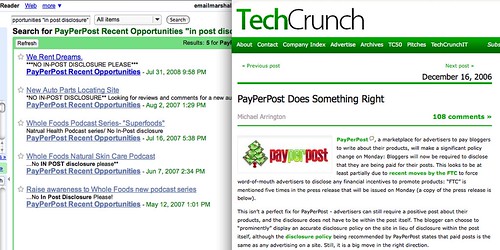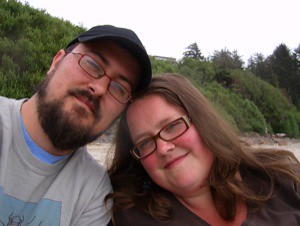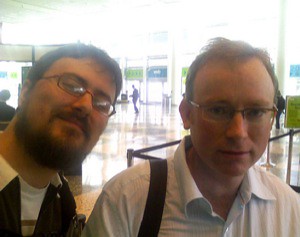In September I wrote a blog post about reading RSS feeds for, if not at, your work. (“Reading Blogs at Work: Why You Should Do It & How You Can Make it Worthwhile“) One of the things I discovered in writing that post was the fantastic weekly carnival of medical blogs called the Grand Rounds. This wonderful series has been running for more than 4 years now and many of its participants put great care into their hosting efforts. When it’s their turn to play host the solicit, search for, organize and sometimes summarize an awesome selection of the best posts on medical blogs that week.
Unfortunately, I haven’t found any way to subscribe to an RSS or email list of those posts – and I’ve looked really hard! Tonight I’m preparing for a presentation I’m giving tomorrow to a medical tech and civil liberites organization and I really wanted to make such a subscription available for them. So I bit the bullet and made it myself. It was not as easy as I’d like and is going to take a few minutes each week for me to maintain – so if any participants are here reading this and would like to take it over, I’ll show you below not just how I created the feed but how you can help too.
Read on for RSS and email subscription options and step by step instructions describing how this was done. I hope the first commenter from the medical blogging community who stops by will break my heart by showing me an existing RSS subscription option that I just haven’t found yet.
Continue reading
 You know what little startup companies need these days? They need to hire more people! It may be a frightening thought, but in an increasingly social world – being social is becoming an important full time job.
You know what little startup companies need these days? They need to hire more people! It may be a frightening thought, but in an increasingly social world – being social is becoming an important full time job.
 Most important, I’m getting married to my partner Mikalina! Many of my work contacts here on the blog haven’t met Mikalina but many of you have. She’s wonderful and I love her very much. We’ve been together for more than 4 years already and she’s studying to be an environmental engineer. Or a ceramicist – she’s a rock star in both and hasn’t decided what to do about it yet.
Most important, I’m getting married to my partner Mikalina! Many of my work contacts here on the blog haven’t met Mikalina but many of you have. She’s wonderful and I love her very much. We’ve been together for more than 4 years already and she’s studying to be an environmental engineer. Or a ceramicist – she’s a rock star in both and hasn’t decided what to do about it yet.  Readers here may or may not have known that I have only been working roughly half time at
Readers here may or may not have known that I have only been working roughly half time at